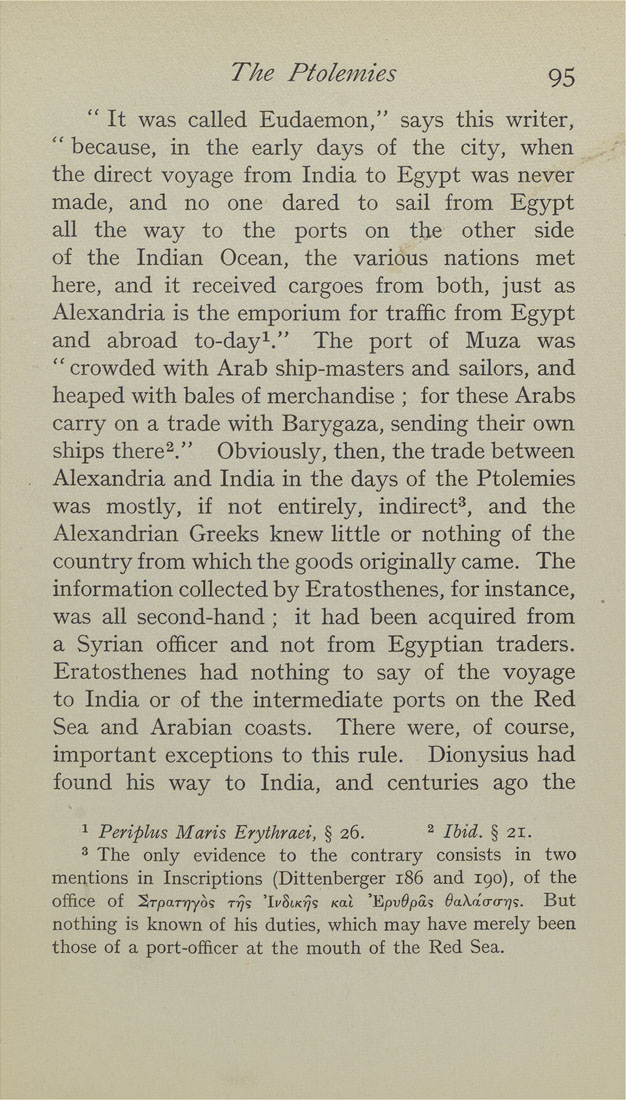The Ptolemies 95
it was called Eudaemon," says this writer,
" because, in the early days of the city, when
the direct voyage from India to Egypt was never
made, and no one dared to sail from Egypt
all the way to the ports on the other side
of the Indian Ocean, the various nations met
here, and it received cargoes from both, just as
Alexandria is the emporium for traffic from Egypt
and abroad to-day^." The port of Muza was
''crowded with Arab ship-masters and sailors, and
heaped with bales of merchandise ; for these Arabs
carry on a trade with Barygaza, sending their own
ships there^." Obviously, then, the trade between
Alexandria and India in the days of the Ptolemies
was mostly, if not entirely, indirect^, and the
Alexandrian Greeks knew little or nothing of the
country from which the goods originally came. The
information collected by Eratosthenes, for instance,
was all second-hand ; it had been acquired from
a Syrian officer and not from Egyptian traders.
Eratosthenes had nothing to say of the voyage
to India or of the intermediate ports on the Red
Sea and Arabian coasts. There were, of course,
important exceptions to this rule. Dionysius had
found his way to India, and centuries ago the
^ Periplus Maris Erythraei, § 26. ^ Ibid. § 21.
^ The only evidence to the contrary consists in two
mentions in Inscriptions (Dittenberger 186 and 190), of the
office of '%rpa.Trpio<i ttj? T^Sikt^s kol 'Epv^pa? 6aXd<j<xy}<;. But
nothing is known of his duties, which may have merely been
those of a port-officer at the mouth of the Red Sea.
|








